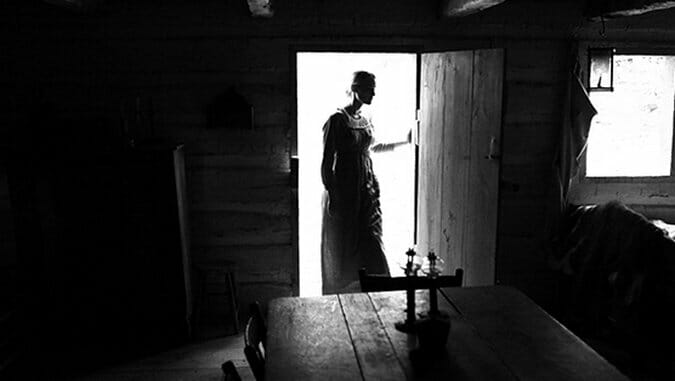The Better Angels

One of America’s greatest weaknesses is its hunger to deify its past leaders. The urge behind it is understandable: Turning men like George Washington and Abraham Lincoln into totems, we give our children heroes to emulate, passing along values to future generations in attractive packages. But the problem comes when we reduce complicated figures into paragons of virtue: How can any of us (let alone our elected officials) compete with perfection?
Seeking the humanity behind the man, The Better Angels is a striking attempt to show us Lincoln’s childhood in a fresh way. This is a noble effort, which is why its miscalculation is all the more disappointing.
Written and directed by A.J. Edwards, the film stars newcomer Braydon Denney as a boy in Indiana in the early 19th century. Living in the woods with his mother (Brit Marling) and father (Jason Clarke), young Abraham is almost a peripheral character in his own drama, a conscious choice on Edwards’ part to give us the sense of a lad quietly taking in everything around him. As his mother lies dying and his father buries his feelings in manly stoicism, Lincoln is portrayed as emotionally adrift, too young to be equipped to absorb such an emotional blow.
-

-

-

-

-

-

-

-

-

-

-

-

-

-

-

-

-

-

-

-

-

-

-

-

-

-

-

-

-

-

-

-

-

-

-

-

-

-

-

-








































